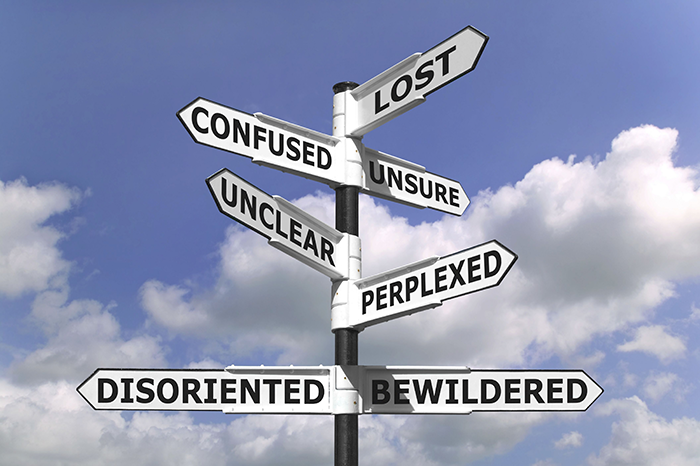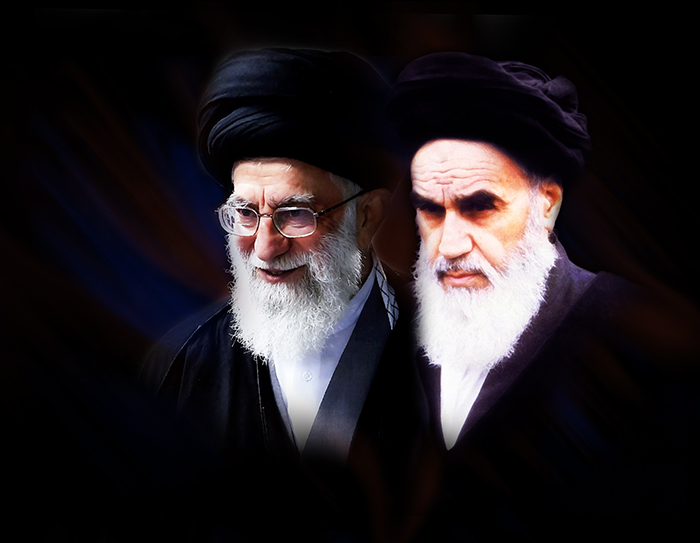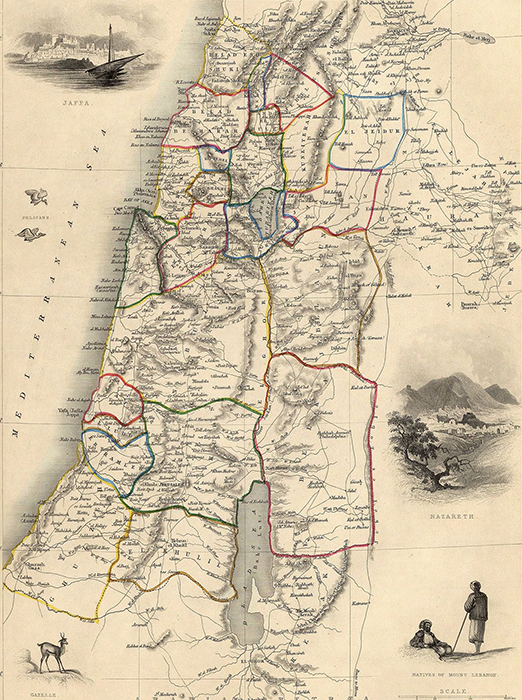Clarity of Thought Essential for Muslims
Fog of Western secularism cannot be cleared by Islamic slogans
Developing Just LeadershipZafar Bangash
Rabi' al-Awwal 04, 1441 2019-11-01
Islamic Movement
by Zafar Bangash (Islamic Movement, Crescent International Vol. 48, No. 9, Rabi' al-Awwal, 1441)
Influenced by Western political thought, most Muslims including many scholars and leaders of Islamic movements have stopped thinking in terms of Islamic principles. They accept Western definitions of right and wrong; of success and failure; and conduct of the affairs of state and society. Simply put, they suffer from profound mental colonization.
At the personal level, Muslims have accepted the West’s narrow definition of “religion”: that it is a personal matter with no role in the affairs of state. Social mores are flexible and dependent on the desires of small but noisy groups in society at any given time. Economic matters are best left in the “capable” hands of usurious vulture capitalists that know best how to manage wealth. And acquisition of wealth is considered the highest pursuit in life that supposedly brings happiness.
Muslims with even a limited understanding of the Qur’an and the Prophetic Sunnah and Sirah know that such definitions run counter to the values and ethos of Islam. Islam is a din (a comprehensive way of life, an ethical code and set of laws), not a religion — a Christian definition where separation of church and state is emphasized, although not always adhered to by the practitioners of statecraft in the West.
At the societal level, most Muslims yearn for change. The systems they live under are incompatible with their values but an average Muslim does not have the wherewithal to bring about the desired change. They jump at the opportunity when someone promises to recreate the prophetic model of Madinah.
Unfortunately, even most ‘ulama’ have been co-opted into the secular system that the colonial powers left behind. The colonial masters transferred power to brown sahibs who have intensified the plunder of state resources. Corruption has reached dizzying heights, as has oppression. The judicial system in almost every Muslim country is broken and fails to deliver justice. It is used by the rich and powerful to get away with serious crimes and even justify them.
What is the way out of this mess and is there any hope for Muslims? The picture is not totally bleak. In recent years, Muslims witnessed the victory of the Islamic Revolution in Iran. The Islamic movement broke the stranglehold of colonial domination. Led by Imam Khomeini and the ‘ulama’, there was no confusion about the colonial imposed order in Iran. The Imam insisted it had to be dismantled in its entirety before the edifice of a new order based on Islamic principles could be erected.
The Islamic Republic — fruit of the Islamic Revolution — is still a work in progress but it has shown through steadfastness and immense sacrifices what is possible if the leadership is sincere and committed to Islam. Despite the huge hurdles thrown in its way and the illegal sanctions imposed on it, the Islamic Republic has withstood all such pressures. Indeed, it has expanded its strategic depth through Hizbullah, the Islamic movements in Palestine as well as its close ties with Iraq and Syria. Even the Ansarullah in dirt-poor Yemen have shown what can be achieved if the leadership and people are sincere and truly committed to Islam.
Immediately after the success of the Islamic Revolution, there were great hopes for dramatic changes in other Muslim countries but no revolution occurred anywhere. Instead, Islamic movements in almost all countries were brutally suppressed when they tried to stage uprisings against tyrannical rulers.

Egypt offers a ready example. With a gory record of suppression throughout the 1950s and 1960s, the Egyptian regime was the first to launch a campaign of terror against its people soon after the victory of the Islamic Revolution in Iran.
Following Anwar al-Sadat’s execution-style killing at a military parade on October 6, 1981 for his treachery in surrendering to the Zionists, al-Jama‘ah al-Islamiyah staged an uprising in southern Egypt hoping that people everywhere will rally to its call. This was a strategic blunder. A movement needs careful planning; it cannot assume that people will automatically respond in a way desired by the movement. The response of the regime, backed and financed by the US and Israel, was brutal.
Not only was the uprising ruthlessly suppressed, kangaroo military courts were set up to prosecute regime resisters as well as their relatives and even defense lawyers. Thousands were rounded up, beaten, and charged with sedition and other spurious offences. Thousands more, who just happened to sport beards and be in the wrong place at the wrong time, were randomly picked up to show that the regime was being tough on Islamic “seditionists” and revolutionaries in an already volatile region of the world.
Hundreds of people were hanged or executed by firing squad after farcical trials based on “confessions” extracted through torture. Operatives of the regime, like other regimes in the Muslim East, also threatened to rape the wives, daughters, sisters, or mothers of the defendants, in order to extract confessions to crimes they had not committed. Aware that Muslims would rather prefer death than allow the honor of their women to be violated, the regime used such “confessions” to send hundreds of men to the gallows and consigned tens of thousands of others to the dungeons. The current regime led by ‘Abd al-Fattah al-Sisi is no less brutal. Circumstances for Islamic movements elsewhere are little better.
Muslims must, therefore, ask whether it is appropriate to resort to armed uprising to overthrow the imposed order in society. What other options are available if Muslims are dissatisfied with the imposed order and no other avenues to bring about change by peaceful means are available? These and similar questions must be addressed to achieve a better understanding of what has gone wrong and how not to repeat such mistakes in the future.

While it is natural to be impatient for change given the sorry state of the Muslim world, it is important to do the proper homework before starting an uprising. This is not merely a question of theory. First, there must be clarity of thought and purpose; second, there must be a critical mass of people willing to challenge the imposed order and sacrifice their lives in the struggle to overthrow it. If Iran-style revolutions are to occur elsewhere, it is imperative that similar efforts be made — both intellectually and physically.
Acquiring power is not the goal; it is a means to an end: the establishment of Allah’s laws on earth. The leadership of the movement must be muttaqi, not pursuing narrow parochial, class, or personal interests. Taqwa also has to be defined more broadly than simply being “pious.”
Projecting an image of piety in a narrow, ritualistic sense has become the norm. We need to rediscover the Qur’anic definition of taqwa that is rooted in firm commitment to Allah (swt), and the understanding that there is a Day of Reckoning when everyone must account for their deeds on earth. How does taqwa manifest itself in Islamic leadership? In short, leaders must have and display clarity; a key characteristic of successful leadership is clarity — clarity in knowing what to do, clarity in knowing who is going to do it, and clarity in holding accountable the doers for their deeds.
Great leadership demonstrates this clarity by properly understanding the present reality and then choosing a directional course to bring about the desired change. Clarity is a characteristic of those who know that the future is shaped by the decisions that we, as human beings, make today. Clarity is a feature of those who choose a directional course that establishes a sense of urgency, paints a just social and economic vision of the future, and satisfies the security and livelihood needs of every important constituency through the application of Allah’s divine law. In this vein, Allah (swt) says about the muttaqis, “…and as for he who protected himself [against Allah’s corrective justice], He will show him a [new] direction, and He will provide [directions] for him from places he would [otherwise] not have seen; and for everyone who places his trust in Allah, He [alone] is enough” (65:2–3).

What gets lost in the translation is that Islamic direction-setting manifests as a byproduct of the mixing of Allah’s Will and the muttaqis’ will. What is also evident in these ayat is that for an activity as important as this, Muslims need to look to none other than Allah (swt). Thus Muslims who merge their consciousness with Allah can emerge from the interaction as powerful leaders. In a nutshell effective leadership furnishes for its flock a strong, unambiguous directional course; direction-setting requires clarity; and Allah shows the way (that is, provides clarity by removing uncertainty). Stated another way, if a leadership claims to be Islamic and the direction it has chosen is not clear, especially to those who have core knowledge, then such leadership cannot be said to have taqwa, and therefore disqualifies from leading Muslims to a more secure and peaceful future.
Through a continual line of prophets from Allah (swt) and their evidence-laden revelations, muttaqi leadership of every era was given an example of how to align a critical mass of committed followers to Allah and His law. These messengers came to remind mankind of their duty to Allah and His creation so that there would be harmony and balance on earth. But Allah did not leave it there; He has commanded His servants to spend of what He has bestowed upon them to help near and distant relatives, the needy, the poor and destitute, and to take concrete corrective action to free people from debt, bondage, and oppression of every kind; in short Muslims must be socially responsible human beings (2:177). If we believe — as we must — that Allah created everything, then His sunan must be implemented in society, not that which we, as human beings with our limited knowledge, perceive to be the right framework for solving the problems of the world.
Equally important, there must be a much clearer understanding of the nature of the dominant systems in Muslim majority societies. There is a general lack of appreciation of this point among many Muslims, including many leading figures in the Islamic movement who mistakenly harbor the notion that there is nothing inherently wrong with existing systems in their societies. They feel that honest people in power positions is all that is required to make these systems work more efficiently and in the general interest of the people. They do not understand that injustice, inequity, and polarity are all threads interwoven into the very fabric of Western secular formulations. They do not understand that justice cannot be manufactured by simply tinkering with injustice. This simplistic approach has caused much confusion among Muslims and led many Islamic movements into a blind alley. Their dismal failure provides ample proof of lack of clarity in thinking. It is time to change this mindset.

